The Zoom camera clicks on and Natalia Ibrahim Abufarah Davila, 35, appears. The Palestinian-Puerto Rican organizer has a soft aura and wears glasses, her face framed by a side part and thick braid. Born to a Palestinian father and a Puerto Rican mother, Abufarah Davila grew up between the two cultures and has since become a familiar face within Puerto Rico’s solidarity movement for Palestinian liberation.
While Abufarah Davila’s family worked around the clock to run their bakery, when they could afford to, summers offered the chance to visit her father’s home in Palestine. “The summer was the perfect time; We didn’t have school, we didn’t have any other compromises,” she explains.
In 1996, at the age of eight, Abufarah Davila made her first trip to Palestine and “fell in love” with her family’s home, so vastly different from Puerto Rico but somehow still reminiscent of the island.
“When you travel between small pueblos [in Puerto Rico], it’s very beautiful; When you travel from San Juan to Ponce, you see the greenery, but when you’re getting to Salinas, to Ponce, it’s not green, the scenery is gold, it’s golden. That’s the type of scenery that you see in Palestine.”
At the age of 17, she visited Palestine once more. While her fears of military-grade weaponry and soldiers resurfaced, these fears could no longer be masked by a child-like innocence.
The scenery had vastly changed. “The unavoidable wall was more developed and extended. There were more military towers and checkpoints than the last time,” she recalls.
Prompted by the site of the wall, Natalia Abufarah Davila began to investigate the reality of a nation under occupation— drawing connections between her father’s homeland and her own. “I became aware of the conditions and limitations of my Palestinian family; Why it was so difficult to visit and see them [in Palestine] and why it is so imperative to resist and fight against settler colonial violence.”
Echoing Abufarah Davila’s calls for Palestinian liberation are the many Puerto Ricans who hold the Palestinian cause as their own.
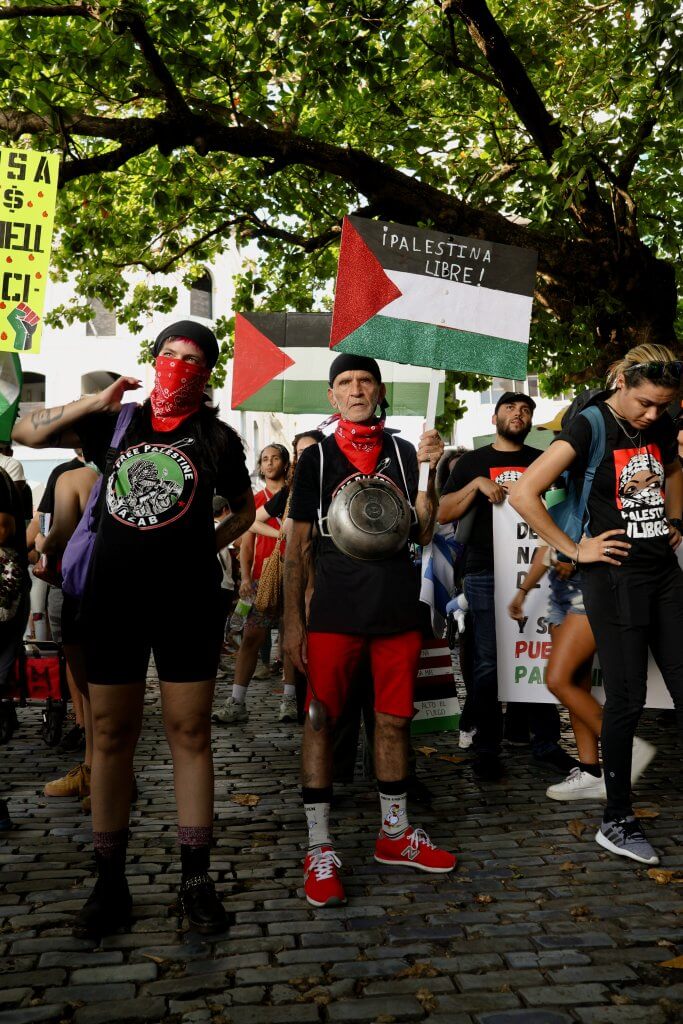
Since October 7, solidarity actions have swept across the archipelago; on November 12, hundreds of protestors marched through San Juan waving Puerto Rican independence flags and Palestinian ones; on December 11, Dr. Conor Tomás Reed led an educational talk at Paseo 13 on cross-solidarity movements for New York, Puerto Rican, and Palestinian liberation; on December 30, a group of around fifty marched through Viejo San Juan, guided by the chants of Santana; each Tuesday, Madres Contra La Guerra have faithfully picketed in front of the Israel consulate in Hato Rey; off the shores, small protests have bubbled up in Vieques, the island once used by the U.S. Navy for a naval weapons training area and which is still littered with explosives.
In support of Palestine, Puerto Ricans have challenged their own territorial status as well as the hypocrisy of the Democratic Party’s active involvement in both Palestine and Puerto Rico’s occupations. With these points, Puerto Rican organizers have also educated on the Palestinian reality — their voices amplifying what experts have said across the last few decades.
In recent years, multiple human rights groups — like Human Rights Watch and Amnesty International — have called out Israel for its creation of an apartheid state. In 2022, the former UN Special Rapporteur Michael Lynk’s report also named Israel as an apartheid regime.
Central to these conclusions are the inhumane practices of seizing and demolishing Palestinian homes, controlling land access, requiring Palestinians in the occupied Palestinian territories (OPT) to use permits to travel between jurisdictions, refusing citizenship from Palestinians in annexed East Jerusalem, trying Israeli settlers in civilian courts while Palestinians are forced into in Israeli military court, among other practices.
As written in Lynk’s report:
“Living in the same geographic space, but separated by walls, checkpoints, roads and an entrenched military presence, are more than three million Palestinians, who are without rights, living under an oppressive rule of institutional discrimination and without a path to a genuine Palestinian state.”
Empathetic to this reality, Puerto Rico’s solidarity movement with Palestinian liberation pushes forward.
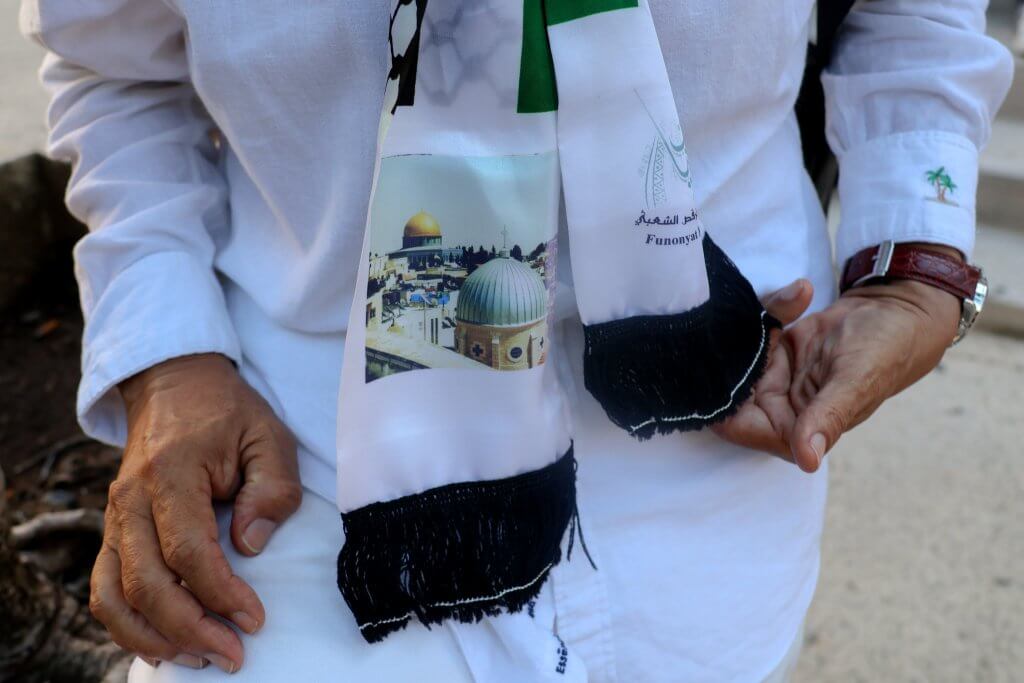
Deeply involved in this movement is Dr. Conor Tomás Reed, 43, the Puerto Rican-Irish author of New York Liberation School and Program Director of the Shape of Cities to Come Institute. Reflecting on the movement’s strengths, Reed told Mondoweiss. “Right now, the people are pointing out the long and intertwined lineages between Palestinians and Puerto Ricans but [they] are also talking about the specificity of these two experiences.”
Puerto Rico’s history of colonization dates back to the Spanish conquest and then to the U.S. colonization of the island after the Spanish-American War. In the spring of 1898, the U.S. took control of Puerto Rico, utilizing the island to extract resources, instill a mono-crop system, and later transform it into a base for big Pharma — as encouraged by targeted tax incentives.
In the midst of these landmark decisions, the U.S. solidified Puerto Rico’s economic reliance on the mainland through policies like the 1920 Merchant Marine Act (Jones Act) — requiring all goods to be carried on American ships from one U.S. port to another. A 2012 report by economists at the University of Puerto Rico showed that the Jones Act resulted in a $17 billion loss between 1990 and 2010. Other reports show that Puerto Rico’s public debt only exists due to the Jones Act.
Due to the domino effect of policy decisions, the cost of living in Puerto Rico is 13% higher than most urban and rural areas on the mainland and the household income is half the median income of Mississippi, the U.S.’s poorest state. Today, 43 percent of Puerto Ricans live below the poverty line and face challenges in finding work.
Many who have studied settler colonialism, like the educator Natalie Santana, 27, recognize the inherent parallels but also differences between Palestine and Puerto Rico.
Speaking to this history, Santana calls attention to the Gag Law — which banned the Puerto Rican flag and pro-independence speech — as well as the prominence of the eugenics movement, the Ponce Massacre, and the Jayuya and Utuado bombings, among other pivotal moments in Puerto Rico’s colonial history.
In reflection, Santana said: “I think it’s important to understand that violence doesn’t always show up the same way, especially not from a colonizer.”
“Violence is still there, even if it feels quieter, even if it’s more so something that you can ‘survive’ under. Their survival [in the West Bank] looks different than ours.”
The colonial violence in Palestine, referenced by Santana, began well before the Nakba, or “catastrophe” of 1948.
The founding fathers of the Zionist movement, calling for a Jewish State, openly stated their intent to colonize Palestine and operated from the framework of terra nullius, an assertion of empty land. The language used by Zionist leaders mirrored the rhetoric towards Puerto Ricans — both peoples deemed as barbaric and inferior.
On the Jewish State, Zionist leader Theodor Herzl wrote that it would “form a part of a wall of defense for Europe in Asia, an outpost of civilization against barbarism.” Recognizing the unfolding backlash created by their open intent to colonize, Zionist leader Ze’ev Jabotinsky wrote in 1923: “Every native population in the world resists colonists as long as it has the slightest hope of being able to rid itself of the danger of being colonized.”
In the years to follow, displacement unfolded as aided by the support of the West. In May of 1948, Israel declared independence, and in the aftermath over 700,000 Palestinians were forced to flee their homes and lands.
For many Palestinians, this point in history, known as the “Nakba,” is remembered across generations with great sadness. In an interview, one Palestinian-American, Fatimah Awad, 24, recalled the story of her own family’s departure.
“My grandfather was born in ‘44, which is four years prior to what’s infamously known as the Nakba. He has so much trauma from this time period in his life where I’m not sure if he just purposely blacks it all out or if it’s a form of trauma where he’s just blacked out,” said Awad.
“He doesn’t talk about it. We’ve tried to ask him about it but he refuses to.”
Though experiencing different circumstances, the sentiment of longing for a home you were forced to leave is well understood by Puerto Ricans.
On September 20, 2017, Hurricane Maria made landfall in Puerto Rico. Devastation swiftly unfurled and the island’s official death toll reached 2,975 — though studies like The New England Journal of Medicine report a death count much higher at 5,000. Though the hurricane was the worst one reported in the last 60 years, the treatment following Maria did not reflect the dire reality at hand.
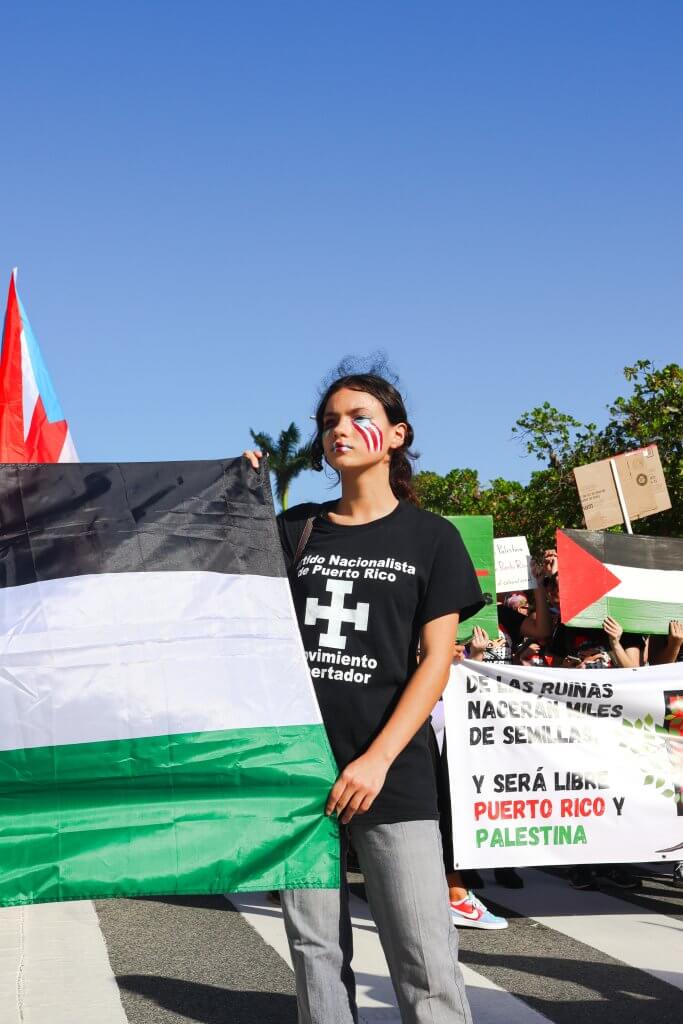
A prolonged public health crisis unfolded in the face of a failing power grid, mass destruction, mismanaged funds, corruption, and blocked aid from the U.S. In the following year, 300,000 Puerto Ricans left for the mainland to survive.
While many Puerto Ricans on the mainland long to return home, their home does not look the same.
In the wake of Maria’s devastation, the island became primed for disaster capitalism to unfold as facilitated by PROMESA and Act 22 — the first of which was signed into law by the Obama Administration in 2016. Together, the two have grandfathered in mass displacement and the closure of several hundred public spaces and schools.
Reflecting on the effect of these policies post-Maria, Abufarah Davila said, “In the aftermath of Hurricane Maria, the scenarios in Puerto Rico were catastrophic wreckage, abandonment, collapse of all essential services, and overall destruction. After all the loss, you think, how do you imagine a life here? How do you have a family here? How can you find a sustainable job or develop a business that has a very valid shot?”
“We depend on what happens in the United States and what these private interests want to be developing in the archipelago. These private interests will always lead people to encounter metaphorical walls.”
Speaking to one way in which these austerity measures manifest in her own life, Santana says, “Driving around, one of the things that I think is impacting me most as a teacher is seeing the abandoned schools. I mean, over 400 schools have closed, I think, since starting 2011 — and that is systematic.”
“Even though we don’t have a wall like in Palestine, we have a lot of walls that are invisible — they are huge obstacles to developing life here in Puerto Rico.”
Despite this reality, Puerto Ricans remain steadfast in mobilizing resources and creating new pathways forward. Speaking to this, Santana said, “I think that’s where you see those beautiful impacts of how necessary community is — it is a part of our culture but it’s become even a stronger part of our culture because of what we’ve experienced on the island.”
“We’ve been abandoned in circumstances like with the hurricane money so all you had was what’s next door. If you don’t have a planta but your neighbor does, that’s who is going to support you.”
Drawing ties between this culture of care and pa’lante, Reed points to a shared culture among Palestinians. “They absorb this kind of tenacity that sometimes people refer to in Arabic as sumud, the endurance of Palestinian liberation,” said Reed.
To some, sumud may seem intangible as the world continues to witness the tragic genocide unfold: the killing of Hind Rajab, the five-year-old who pled for help over the phone beside her family’s dead bodies; the killing of Sidra Hassouna, the seven-year-old whose body dangled lifeless after the airstrikes in Rafah; the killing of Refaat Alareer, the poet and voice of a generation; and the thousands more dead because of Israel’s genocidal war.
Still, sumud perseveres in the hearts of Palestinians, in the hearts of Puerto Ricans, and those who know the face of oppression as well as the transformative power of love.
It is here that Abufarah Davila still finds hope.
Reflecting on the organizers in Puerto Rico and the direct actions that have swept the globe, she says: “I don’t say this very lightly because sometimes it’s very difficult to be happy when we’re witnessing all of these atrocities and displacement…But, when I think about radical love, in the sense that when we join forces we are practicing love and hope, that makes me happy.”
Continuing forward, Natalia Abufarah Davila says, “Meeting, organizing with people that are willing to have space for this and what’s happening in the world, not only in Palestine and Puerto Rico, I think that that gives me hope.”
Bound by shared understanding and tethered by a hope for a better future and a hope to return home, the Puerto Rico-Palestine solidarity movement continues forward; sumud endures, pa’lante endures, the two interwoven for good.
Sage Rios Mace
Sage Rios Mace is a Puerto Rican story-teller and sociologist from the Bay Area, CA based in San Juan, PR. Guided by a love ethic, Sage’s journalism investigates social inequities and in 2020 she placed first as a political columnist in the Bay Area Press Awards. Off the clock, Sage can be found writing poetry or teaching her second-grade students.
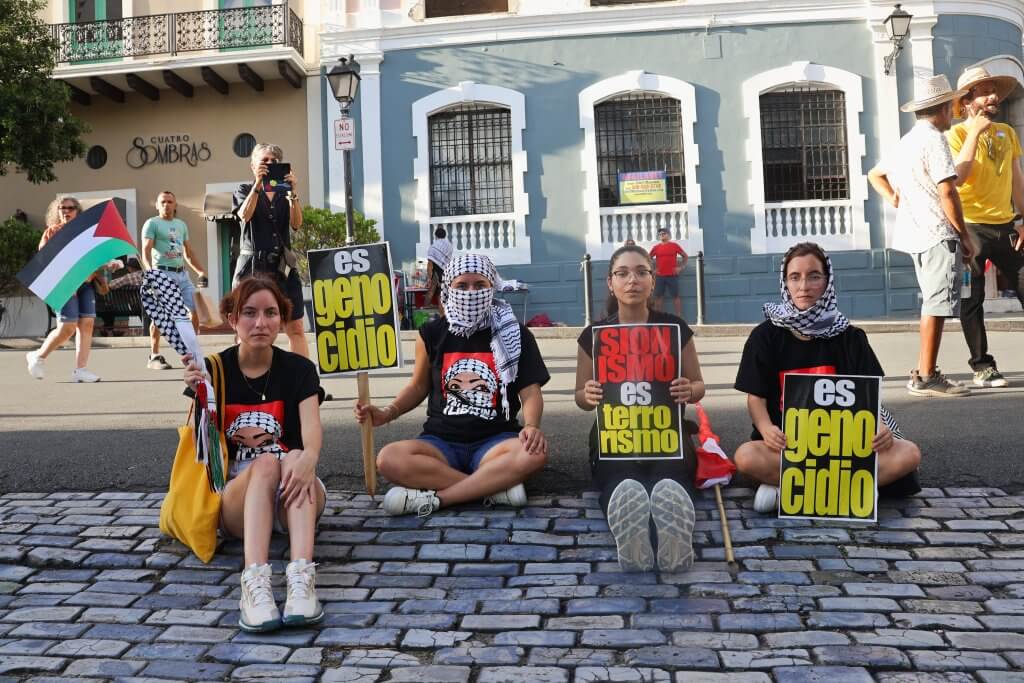
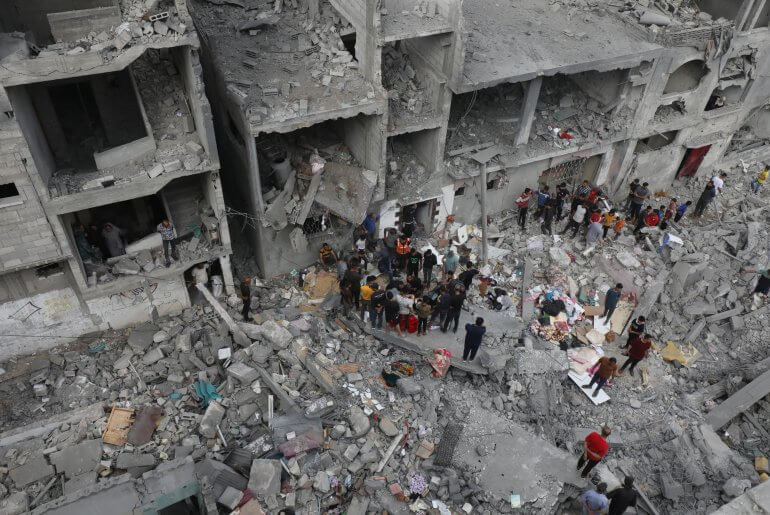
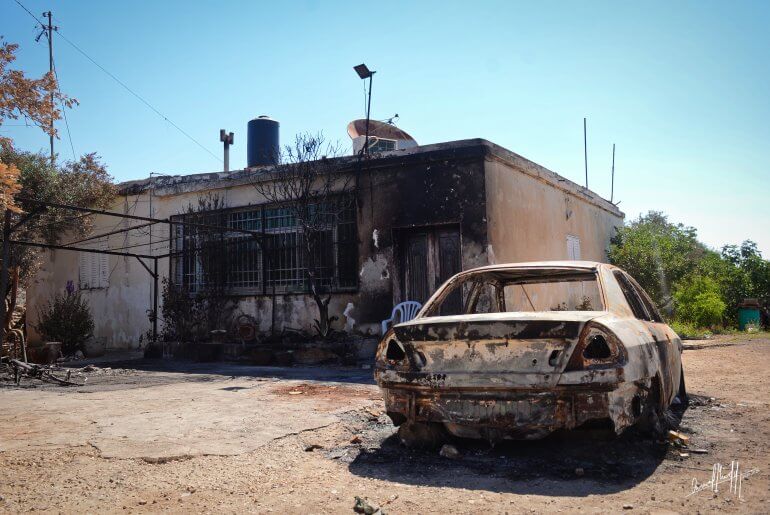
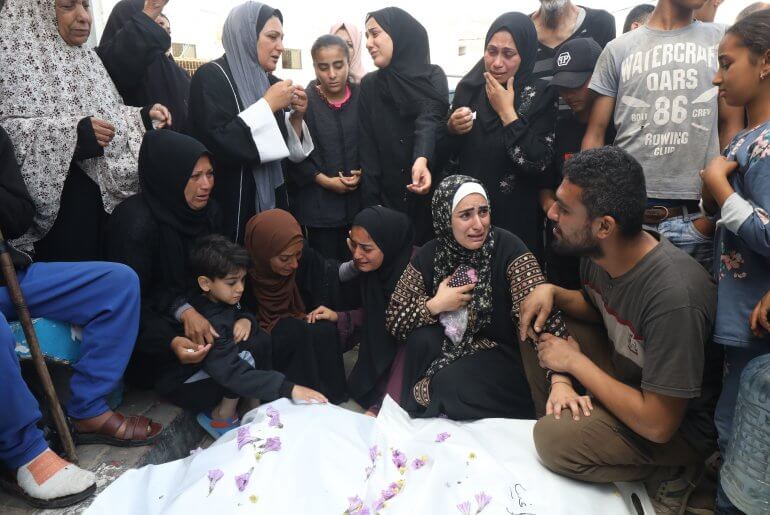
“Bound by shared understanding and tethered by a hope for a better future and a hope to return home,”
Professor Seyyed Mohammad Marandi twice gassed In the Iran Iraq war by materiel supplied by Germany and America and targeting intelligence from America, gives you a view outside western delusions, link below
Just recently President Vladimir Putin, who is on the cusp of victory on the Eastern front said
“There are those ( the Golden Billion) used to filling their bellies with human flesh and their pockets with money they have to realize that their Vampires Ball is over” to whom and to what do you think he was referring,
“O, wad some Power the giftie gie usTo see oursels as others see us!It wad frae monie a blunder free us,An’ foolish notion.”
Americas “mistakes” which are in reality gross crimes have overtaken it. if you have a quiet afternoon you could do worse than to read “The Man Without Qualities” by Herbert Musil and see how Euro/American triumphalism has collapsed into angst, rage, fear and ultimately defeat.
Iran Doesn’t Want Larger War with Israel But is Ready For It
https://youtu.be/pdCyssFsWsc?si=4mH6vbdpD9-u-JfO
In “Neither Settler Nor Native” (very good book, highly recommended), Mahmood Mamdani tells us that a “tortured legal category was created for Puerto Ricans, defined as “foreign to the United States in a domestic sense.” Whatever that means. Judging by recent history, it means we have power over it but we’re not responsible for it.